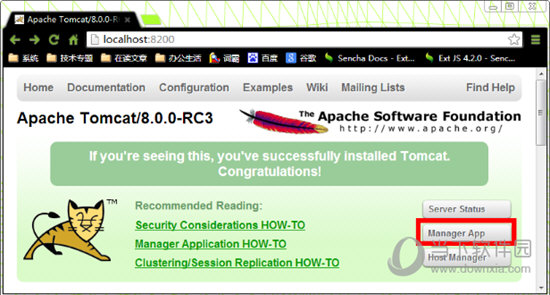

There are a few adapter modules available, such as Apache JServ Protocol (AJP) v1.2 "JServ" module (outdated), AJP v1.3 "JK 1.2" module (in use) and "JK 2" module (deprecated). If so, it lets the adapter takes the request and forwards it to Tomcat, as illustrated below. When Apache receives an HTTP request, it checks if the request belongs to Tomcat.


Read "Why should I integrate Apache with Tomcat? (or not)" at Tomcat FAQ ( ). In this combination, Tomcat executes the Java servlets and JSPs, the Apache serves the static HTML pages and performs other server-side functions such as CGI, PHP, SSI, etc. Tomcat can also be run as an add-on to the Apache HTTP Server (or Microsoft IIS) - as the Java servlet/JSP container. Tomcat can be run as a standalone server.
#Apache tomcat band how to#
It is recommended to Upgrade to version 5.5.30 / 6.0.28 or greater.Apache 2 with Tomcat 6 How To Configure Tomcat to work with Apache How to Connect Tomcat 6 to Apache HTTP Server 2 The remote Apache Tomcat service is vulnerable to information disclosure or a denial of service attack due to a mishandling of invalid values for the 'Transfer-Encoding' HTTP header as sent by a client.Īn attacker may use this flaw to gather information about the remote host and possible launch denial of service attack. It is recommended to Disable compatibility with version 1 of the protocol & use higher version SSH protocol.ġ.1.2 Apache Tomcat Transfer-Encoding Header Vulnerability These protocols are not completely cryptographically safe so they should not be used.Īn attacker may use this flaw to sniff the traffic over the network to get the sensitive information since protocol offers an insecure cryptographic protocol. The remote SSH daemon supports connections made using the version 1.99. Customer have used Nessus Vulnerability Scanner (latest Version).ġ.1.1 Insecure cryptographic protocol – Old version SSH protocolĪujas identified that the remote service offers an insecure cryptographic protocol. If you have specific queries regarding vulnerabilities, you can contact support for more indepth information regarding why SBG is not affected.įind the below result of vulnerability scanner. Of course, any vulnerabilities that are exposed are triaged and fixed with extremely high priority but to my knowledge, again due to the secure implementation methods we have engineered into SBG, this has never occurred.

Of course, this version of openSSH was patched as part of our engineering process anyway but it was not an exposed vulnerability on our platform. As long as SBG is deployed and managed in the documented and supported ways (i.e you MUST NOT perform any modification to the included components or configuration outside of the UI or managed CLI functions) then it was not possible for the vulnerability to be exploited on SBG - despite vulnerability tools saying it was. It is an unfortunate, but true fact, that a number of the available vulnerability reporting tools merely query product/component versions and generate exceptions based on this data, rather than actually performing any tests to verify whether the vulnerability exists.įor example, there was a vulnerability announced earlier this year I think for OpenSSH regarding a buffer overflow vulnerability.


 0 kommentar(er)
0 kommentar(er)
